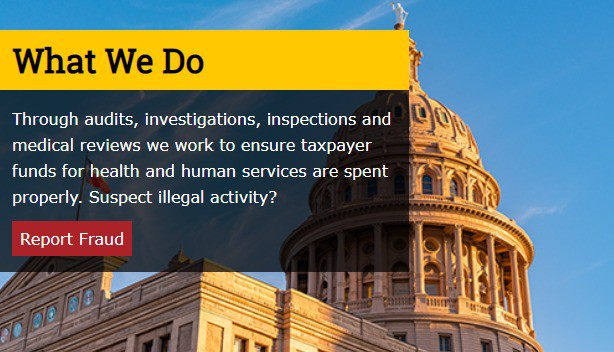 On Tuesday, Texas HHS OIG sent out its June email newsletter. Out of the three articles promoted, one is again about dental Medicaid issues. This time the article is about common billing errors committed by Medicaid dentists, an article that was published on the OIG website back in April. We republish it here in its entirety.
On Tuesday, Texas HHS OIG sent out its June email newsletter. Out of the three articles promoted, one is again about dental Medicaid issues. This time the article is about common billing errors committed by Medicaid dentists, an article that was published on the OIG website back in April. We republish it here in its entirety.
Common violations in Medicaid dental billing
The Office of Inspector General (OIG) collaborates with Texas dentists to prevent and investigate fraud, waste and abuse in Medicaid and CHIP services delivery. OIG actions help providers minimize billing mistakes and ensure Texas tax dollars are used for their intended purposes.
Through the course of its audits, inspections, reviews and investigations, the OIG sees the same errors repeated across providers. The problems can be revealed through the OIG’s data-driven initiatives that examine claims and flag unusual billing patterns, or they may arise from potential suspicious behavior reported by a dental maintenance organization (DMO) or Medicaid client. Whether the violations are accidental or intentional, it is the OIG’s job to verify that work billed to Medicaid was performed, necessary and met the profession’s standard of care.
Typical errors
These are the most common violations observed in OIG dental investigations:
- Billing for a restoration when x-rays reveal that the tooth is a sealant or preventive resin restoration.
- Billing for a more complicated tooth extraction when a lesser extraction would be sufficient.
- Billing for unnecessary treatment when there is no evidence of decay; includes restorations, pulpotomies and stainless steel crowns.
- Repeated restorations on the same tooth without evidence of additional decay or failure of the current restoration.
- Billing for two separate single surface restorations when it was actually a two-surface restoration.
- Billing for a tooth extraction when the tooth would naturally fall out on its own.

